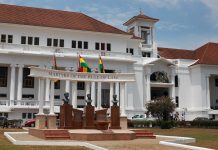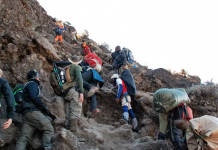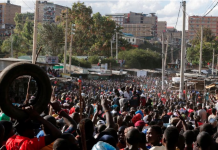At least 26 people have been killed and seven were wounded in an overnight attack in a rural area of Burundi, which was described by the country’s security minister as the work of a “terrorist group”.
The attack was carried out in a village in the rural northwestern area of Cibitoke, on the border with the Democratic Republic of Congo.
Burundi security minister Alain Guillaume Bunyoni said 24 people were killed in their homes on Friday night and two others died of their injuries at a local hospital.
One survivor told the Associated Press a group of armed men “attacked households and set fire on houses” at around 10pm local time. She said some victims were hacked with machetes while others were shot or burnt alive.
The attack comes shortly before Burundians are due to vote on 17 May in a referendum that could extend the president’s term from five to seven years; this would allow President Pierre Nkurunziza to rule for another 14 years when his current term expires in 2020.
The proposed changes would limit the president to two consecutive terms but would not take into account previous terms, potentially extending President Nkurunziza’s rule to 2034.
It is unclear whether the attack is related to the upcoming vote.
Burundi has seen deadly political violence since early 2015 when President Nkurunziza won a disputed third term in office in an election marred by violence and an opposition boycott.
An estimated 1,200 people were killed and 400,000 people have fled the country since the political unrest began in April 2015, according to the UN.
Earlier this month, the US denounced “violence, intimidation and harassment” against those thought to oppose the referendum and expressed concerns about the “non-transparent process” of changing the country’s constitution.
President Nkurunziza, a former rebel leader, has ruled the small central African country since 2005 after the end of Burundi’s civil war that killed more than 300,000 people.
— independent

























































